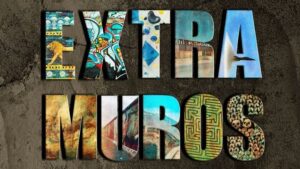Share
The repatriation of members of a diaspora’s corpses may take place at a given point of time in the history of a transnational family. This fact is linked to the importance for some communities to be buried in their home country. However, corpse repatriation is a complex process involving several actors and several steps, from the procedures allowing the journey to the recovery of the body by the family.
In the Moroccan case, nationality is mainly determined by the ties of blood, ensuring the continuity of this belonging within the diaspora. Moroccan nationality is transmitted even if one of the two parents is not Moroccan. Initially, this tie was only transmitted by the father but since 2007, the mother also transmits Moroccan nationality. Therefore, the link with the origin country is maintained through generations.
By looking at the Moroccan consulate’s website, the administrative procedure seems relatively clear. There are a lot of administrative documents to provide. In addition, Moroccan authorities must be aware of who will get the corpse and where the person will be buried. Assistance for repatriation costs is provided on a case-by-case basis for so-called “destitute” families. Everything is in place to allow families to return the corpses to their country of origin.
However, the Covid-19 health crisis has brought this system to a sudden stop. Indeed, Moroccan authorities have forbidden the repatriation processes throughout 2020. The government has asked its foreign nationals to temporarily carry out burials in their country of residence while offering financial assistance for burial costs of destitute families. On their side, the Belgian communal authorities have ensured that burials could take place in Muslim graves.
This ban has provoked heated reactions within the diaspora. In fact, the Moroccan diaspora has seen this measure as a violation of their dignity, causing a breach in the family history and collective memory. This has left a mark on the relationship between Moroccan nationals abroad and the political authorities of their country of origin.
After that, the diaspora had political grievances. However, in the next elections, which took place in September 2021, these grievances were not really mirrored. The fact that Moroccan nationals living abroad do not have the right to vote from there had limited the scope of their votes. In fact, the Moroccan constitution provides for this right to vote, but this has not yet been put into practice. This point is also the subject of demands and regular petitions from nationals living abroad.
In conclusion, the problem of corpse repatriation during Covid-19 emphasized the complexity of one among many elements of transnational relations. Moreover, those facts illustrate the lack of clarity surrounding the responsibility between nationals living abroad and their country of origin.


